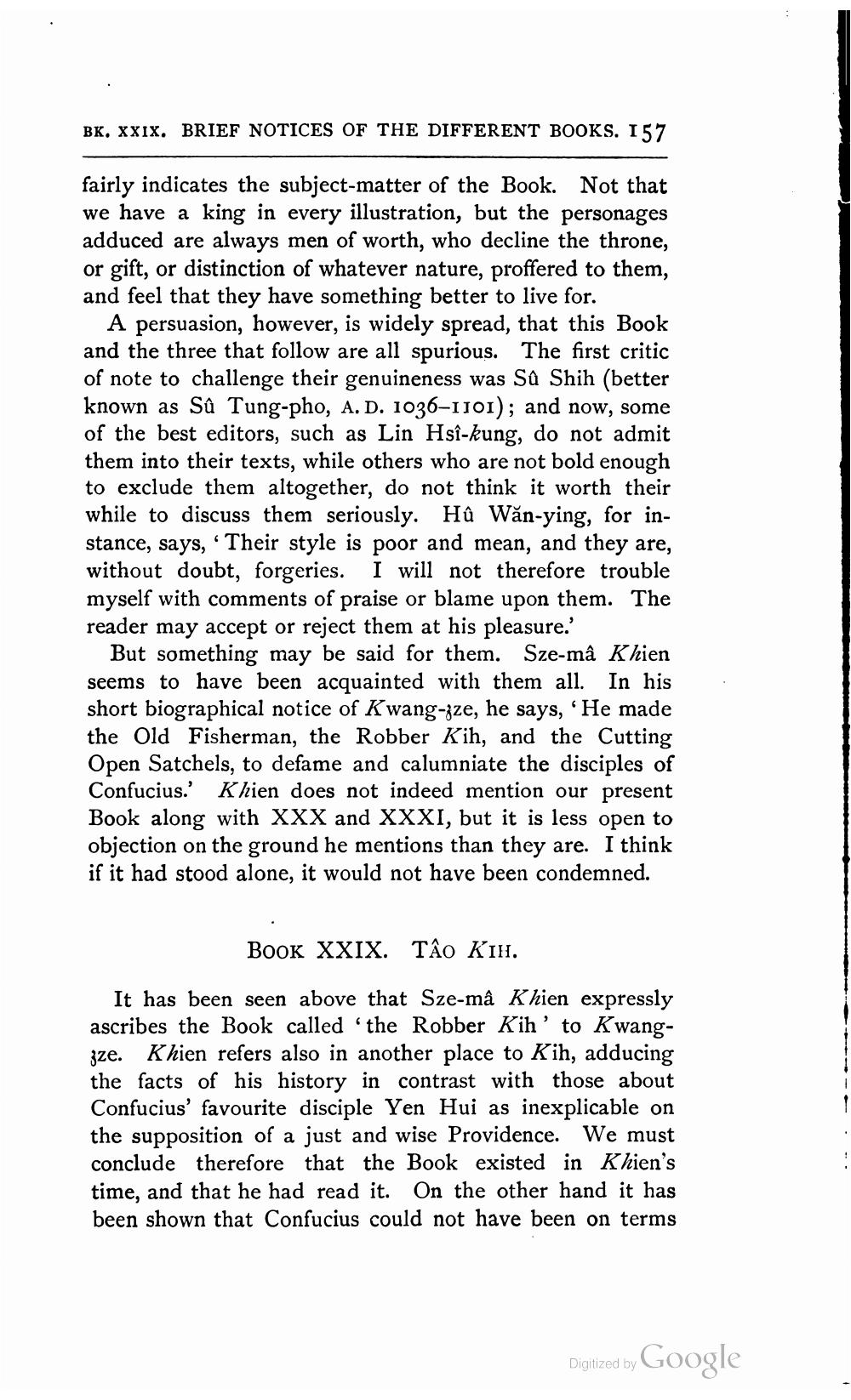________________
BK, XXIX. BRIEF NOTICES OF THE DIFFERENT BOOKS. 157
fairly indicates the subject-matter of the Book. Not that we have a king in every illustration, but the personages adduced are always men of worth, who decline the throne, or gift, or distinction of whatever nature, proffered to them, and feel that they have something better to live for.
A persuasion, however, is widely spread, that this Book and the three that follow are all spurious. The first critic of note to challenge their genuineness was Su Shih (better known as Sû Tung-pho, A. D. 1036-1101); and now, some of the best editors, such as Lin Hşî-kung, do not admit them into their texts, while others who are not bold enough to exclude them altogether, do not think it worth their while to discuss them seriously. Hû Wăn-ying, for instance, says, 'Their style is poor and mean, and they are, without doubt, forgeries. I will not therefore trouble myself with comments of praise or blame upon them. The reader may accept or reject them at his pleasure.
But something may be said for them. Sze-mâ Khien seems to have been acquainted with them all. In his short biographical notice of Kwang-zze, he says, 'He made the Old Fisherman, the Robber Kih, and the Cutting Open Satchels, to defame and calumniate the disciples of Confucius.' Khien does not indeed mention our present Book along with XXX and XXXI, but it is less open to objection on the ground he mentions than they are. I think if it had stood alone, it would not have been condemned.
BooK XXIX. TAO KIH.
It has been seen above that Sze-mâ Khien expressly ascribes the Book called 'the Robber Kih' to Kwangzze. Khien refers also in another place to Kih, adducing the facts of his history in contrast with those about Confucius' favourite disciple Yen Hui as inexplicable on the supposition of a just and wise Providence. We must conclude therefore that the Book existed in Khien's time, and that he had read it. On the other hand it has been shown that Confucius could not have been on terms
Digitized by Google




